



Source: Tom Roberts
In the years after colonisation, Australia grew as a nation, slowly moving away from considering themselves as British and forming a distinctly Australian national identity. But what lead to this change? Read through the resources below and explores the topics above to explore how Australia became Australia.
This timeline features a collection of clips covering Australian history from hundreds of thousands of years ago to the beginning of the 21st Century and is a good place to start to see how Australian history has developed over time.
This collection provides a detailed history of key events in Australian history, with images, quotes, related moments and suggestions for further reading.
By world standards, Melbourne is a young city but it has layers of history. Bluestone and concrete, paint and neon, Victorian-ornate and sheet-glass — all cram into the cross-hatched canyons that are Melbourne's streets and lanes. Using this website you can discover how each era shaped the city we see today and relate it to the broader history of Australia.
The National Museum of Australia, in the national capital Canberra, preserves and interprets Australia's social history, exploring the key issues, people and events that have shaped the nation and is a great place to start your research.
The Australian Museum is the oldest museum in Australia, and the fifth oldest natural history museum in the world, with an international reputation in the fields of natural history and anthropology. It is a good place to find primary resources.
The NFSA website has hundreds of themed curated collections featuring Australia's history, personalities, Indigenous peoples and including a selection of Australia's favourite films, TV shows and musicians. There is something for everyone, and hours of content to explore.
The National Archives safeguards the nation's memory. They collect, preserve and manage documents and other evidence that record important events in Australian history and make them available to the public, in accordance with the Archives Act, 1983. It is a great place to look for primary sources.
State Library Victoria is one of Australia's oldest cultural institutions. It is the major reference and research library in Victoria, responsible for collecting and preserving Victoria's documentary heritage and making it available through a range of services and programs.

Alluvial: clay, silt, sand, gravel, or similar detrital material deposited by running water.
Banjo Patterson: Andrew Barton "Banjo" Paterson, CBE was an Australian bush poet, journalist and author.
Bushranger: an outlaw living in the bush.
Colony: a group of people of one nationality or race living in a foreign place.
Deep Reef Gold: a type of gold mining in "reefs" of quartz.
Federation: the process by which the six separate British self-governing colonies of Queensland, New South Wales, Victoria, Tasmania, South Australia, and Western Australia agreed to unite and form the Commonwealth of Australia, establishing a system of federalism in Australia.
Gold Rush: a rapid movement of people to a newly discovered goldfield. The first major gold rush, to California in 1848, was followed by others in the US, Australia (1851–3), South Africa (1884), and Canada (Klondike, 1897–8).
Henry Lawson: Henry Archibald Hertzberg Lawson was an Australian writer and bush poet. Along with his contemporary Banjo Paterson, Lawson is among the best-known Australian poets and fiction writers of the colonial period and is often called Australia's "greatest short story writer".
Hero: a person who is admired for their courage, outstanding achievements, or noble qualities.
Identity: the qualities, beliefs, personality traits, appearance, and/or expressions that characterize a person or group.
Immigration Restriction Act: The Immigration Restriction Act 1901 was an Act of the Parliament of Australia which limited immigration to Australia and formed the basis of the White Australia policy which sought to exclude all non-Europeans from Australia.
Kanakas: a Pacific Islander employed as an indentured labourer in Australia, especially in the sugar and cotton plantations of Queensland.
Nationalism: an ideology that emphasizes loyalty, devotion, or allegiance to a nation or nation-state and holds that such obligations outweigh other individual or group interests.
Panning: wash gravel in a pan to separate out gold.
Villain: a cruelly malicious person who is involved in or devoted to wickedness or crime.
White Australia Policy: the fundamental legislation of the new Commonwealth of Australia that effectively stopped all non-European immigration into the country and that contributed to the development of a racially insulated white society.

|
|
The History ListenNew and compelling stories from Australia and around the world, told by some of our most popular and trusted historians. Step inside a time machine for an immersive journey through history, where stories of people, places, and events bring the past vividly into our present world. |
Australian Histories PodcastThe Australian Histories Podcast aims to take a fresh look at some of the brilliant stories from Australia's past. The podcast content will be presented as a series of themed stories rather than a straightforward chronological structure. The stories recounted may be mixed up a bit in the Australian history timeline, but I have put a timeline on the webpage, to help you navigate backward & forwards, as we explore each themed episode & note where each story fits in. |
|
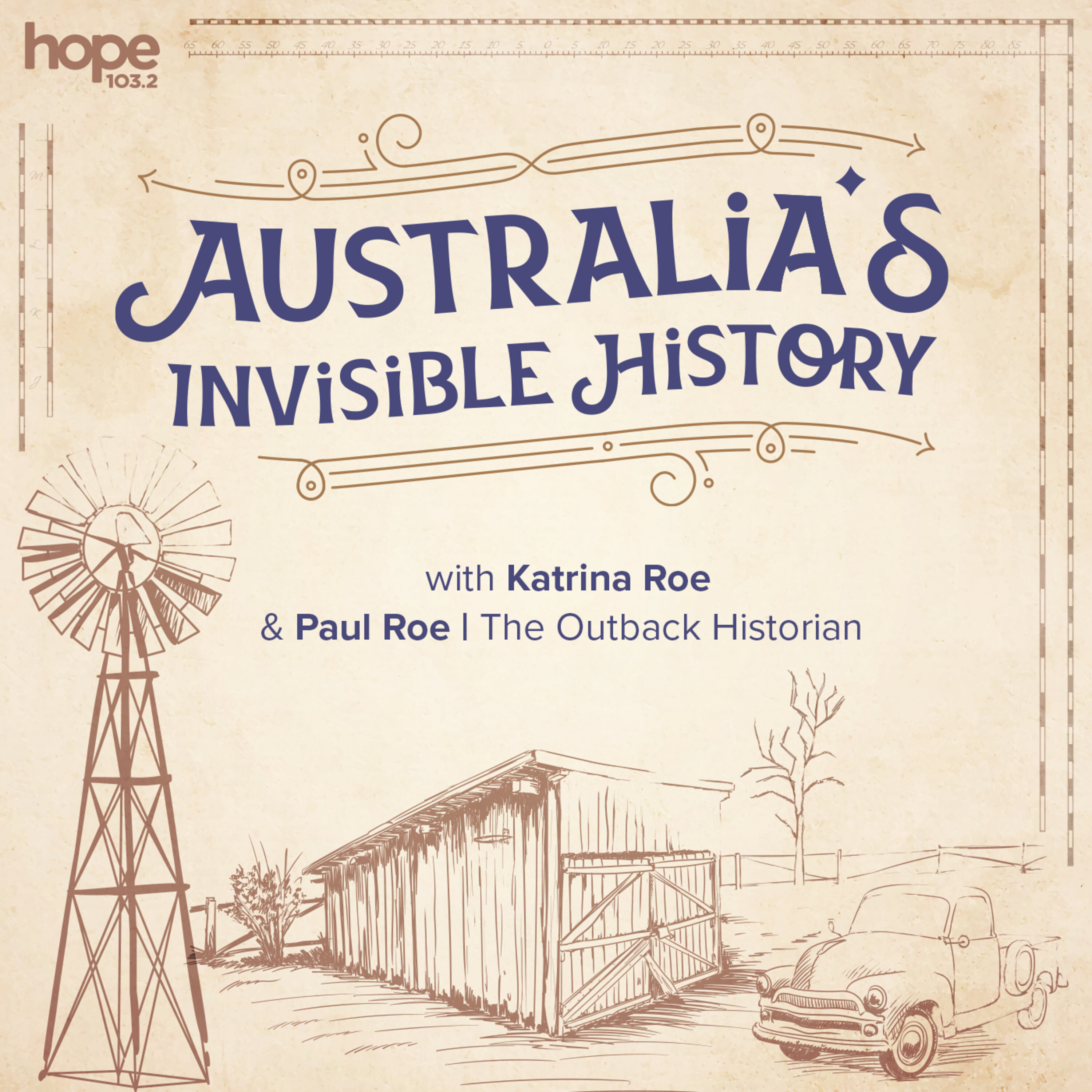 |
Australia's Invisible HistorySo many of us Australians do not know our own history. But that can all change. Join Sydney-based broadcaster and author Katrina Roe and The Outback Historian Paul Roe as they make the invisible visible by digging up the buried stories of Australian heroes, pioneers, and visionaries. Here, you will meet Australians from every corner of the country, the city, and the bush including migrants and Indigenous Australians, men and women, nurses, doctors, activists, boxers, athletes, missionaries, and ministers. |


 1901 and all that
by
1901 and all that
by
 Achieving nationhood : the story of Federation
by
Achieving nationhood : the story of Federation
by
 Analysing Australian history
by
Analysing Australian history
by
 Australia's heritage in profile
by
Australia's heritage in profile
by
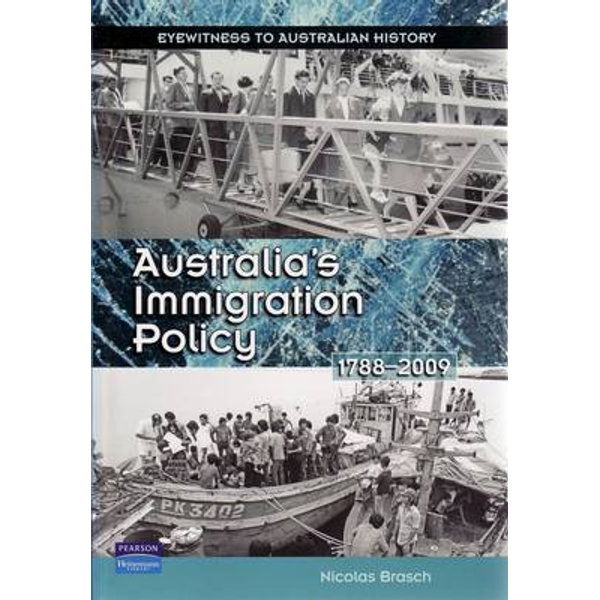 Australia's immigration policy : 1788-2009
by
Australia's immigration policy : 1788-2009
by
 Australian Federation one people, one destiny
by
Australian Federation one people, one destiny
by
 The Australian flag : the first 100 years
by
The Australian flag : the first 100 years
by
 Australian flags and emblems
by
Australian flags and emblems
by
 Australian pioneers
by
Australian pioneers
by
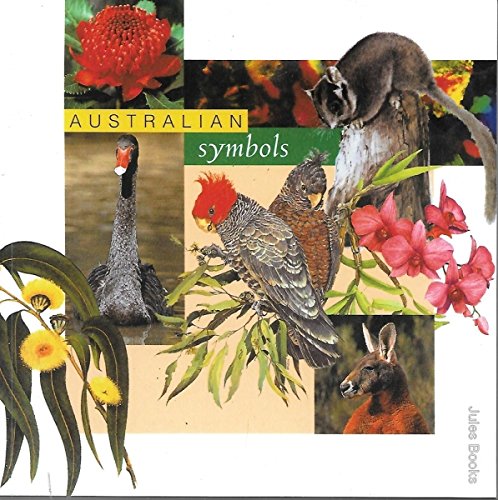 Australian symbols
by
Australian symbols
by
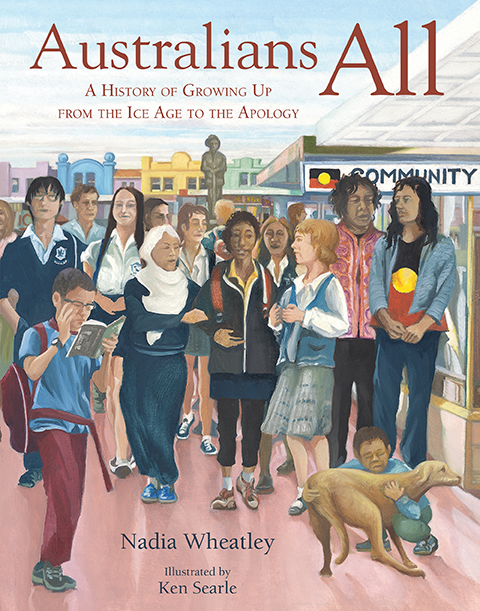 Australians all : a history of growing up, from the ice age to the apology
by
Australians all : a history of growing up, from the ice age to the apology
by
 Backtrack Australia's twentieth century
by
Backtrack Australia's twentieth century
by
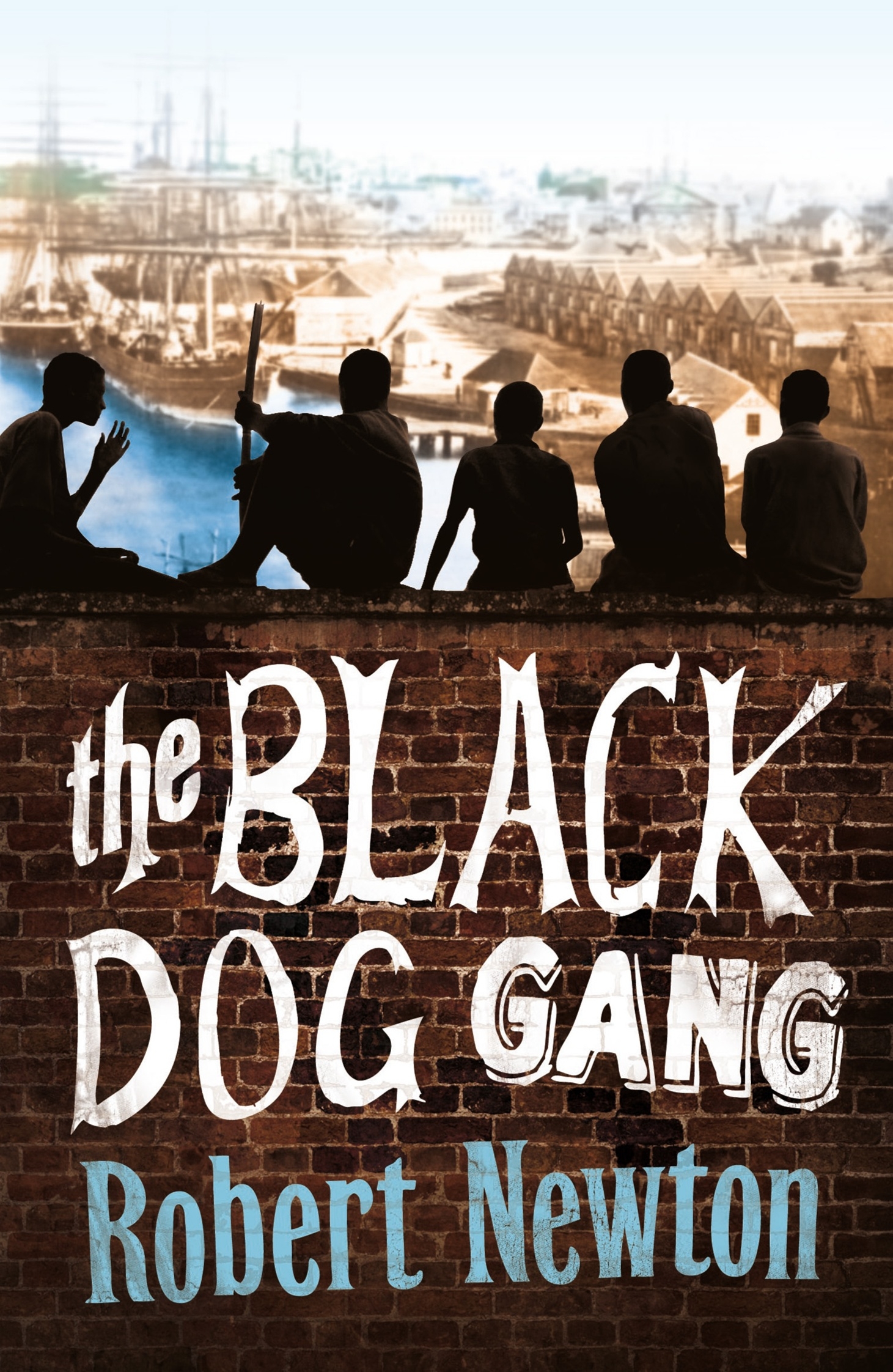 The black dog gang
by
The black dog gang
by
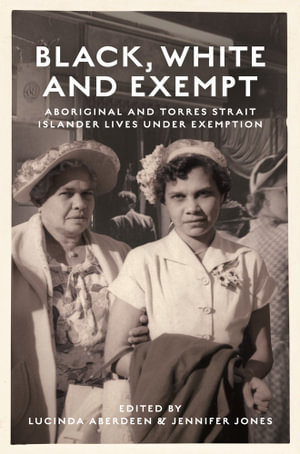 Black, white and exempt : Aboriginal and Torres Strait Islander lives under Exemption
by
Black, white and exempt : Aboriginal and Torres Strait Islander lives under Exemption
by
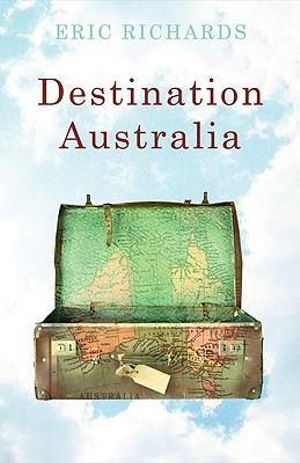 Destination Australia : migration to Australia since 1901
by
Destination Australia : migration to Australia since 1901
by
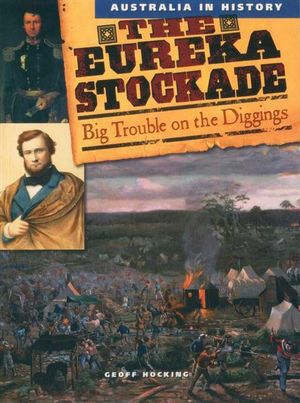 The Eureka Stockade : big trouble on the diggings
by
The Eureka Stockade : big trouble on the diggings
by
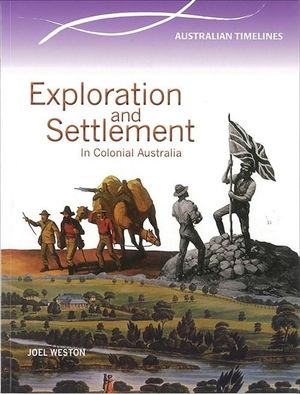 Exploration and settlement in Colonial Australia
by
Exploration and settlement in Colonial Australia
by
 Focus on Australian history
by
Focus on Australian history
by
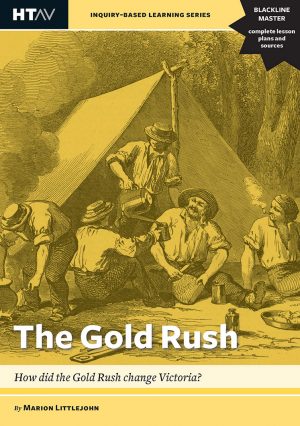 The gold rush : how did the gold rush change Victoria?
by
The gold rush : how did the gold rush change Victoria?
by
 Gold rushes the new prosperity
by
Gold rushes the new prosperity
by
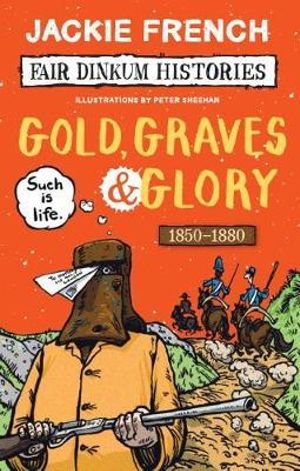 Gold, graves and glory 1850-1880
by
Gold, graves and glory 1850-1880
by
 Gold: a pictorial history of the Australian gold rush
by
Gold: a pictorial history of the Australian gold rush
by
 Gold: the fascinating story of gold in Australia
by
Gold: the fascinating story of gold in Australia
by
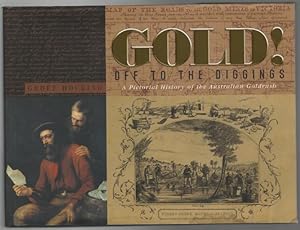 Gold! Off to the diggings : a pictorial history of the Australian gold rush
by
Gold! Off to the diggings : a pictorial history of the Australian gold rush
by
 Heritage & people
by
Heritage & people
by
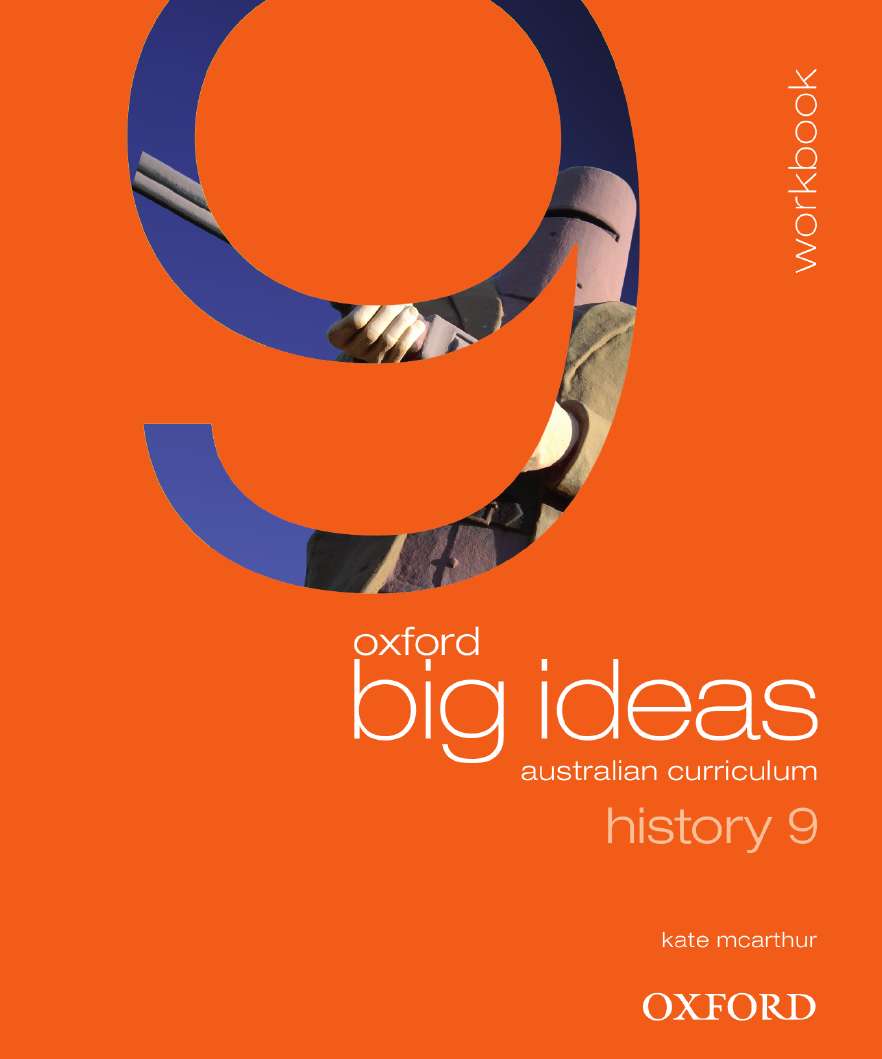 History 9 Australian curriculum workbook
History 9 Australian curriculum workbook
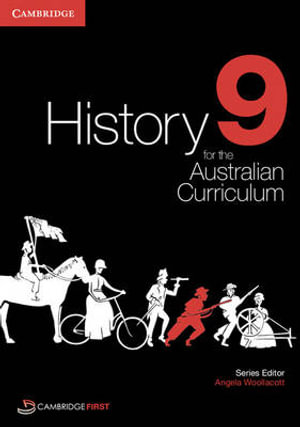 History 9 for the Australian Curriculum
by
History 9 for the Australian Curriculum
by
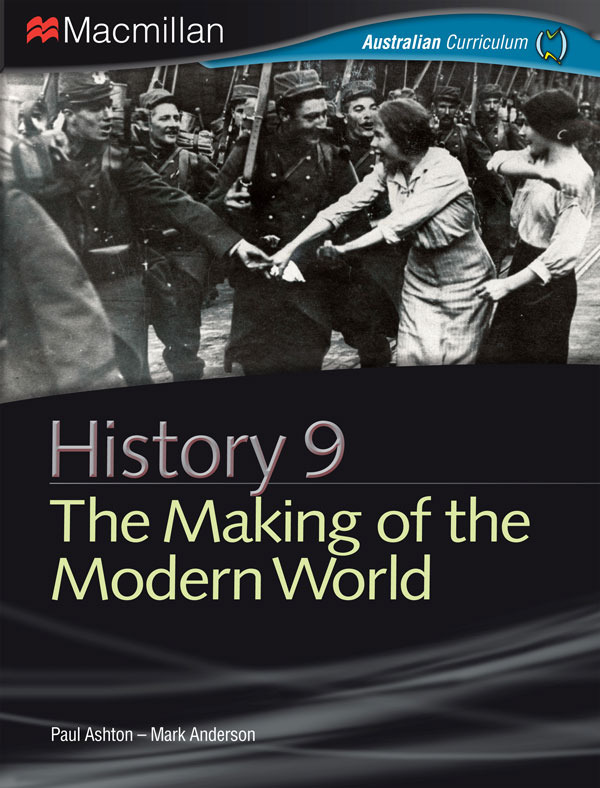 History 9 The making of the modern world
by
History 9 The making of the modern world
by
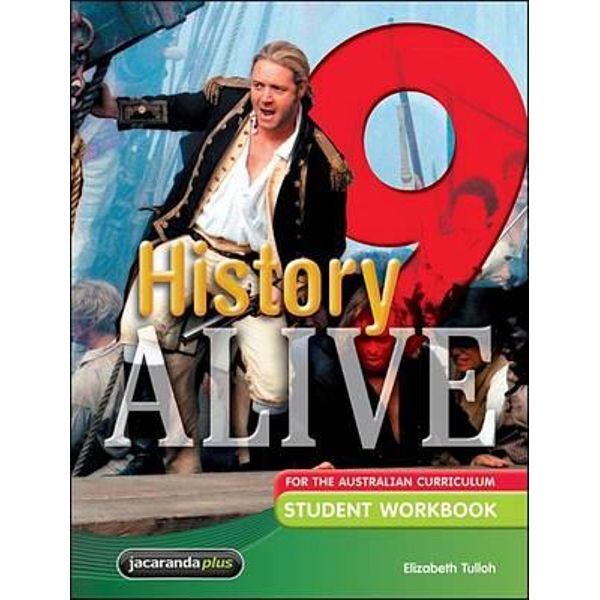 History alive 9 for the Australian curriculum
by
History alive 9 for the Australian curriculum
by
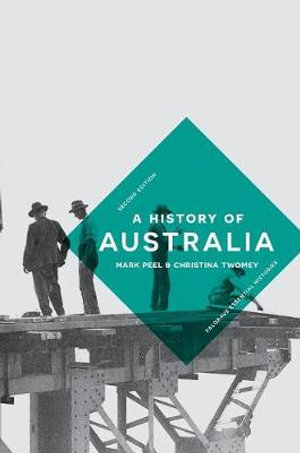 A history of Australia
by
A history of Australia
by
 The illustrated history of Australia
by
The illustrated history of Australia
by
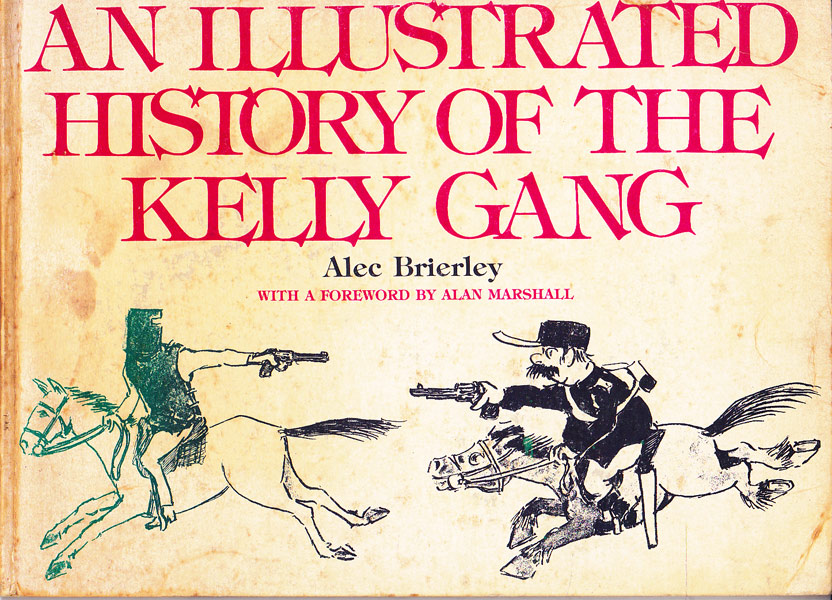 An illustrated history of the Kelly Gang
by
An illustrated history of the Kelly Gang
by
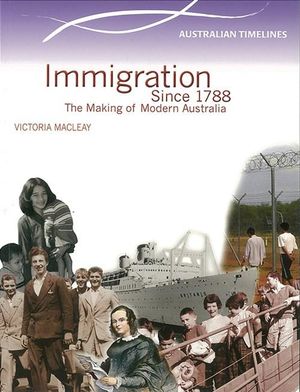 Immigration since 1788 : the making of modern Australia
by
Immigration since 1788 : the making of modern Australia
by
 Life on the goldfields
by
Life on the goldfields
by
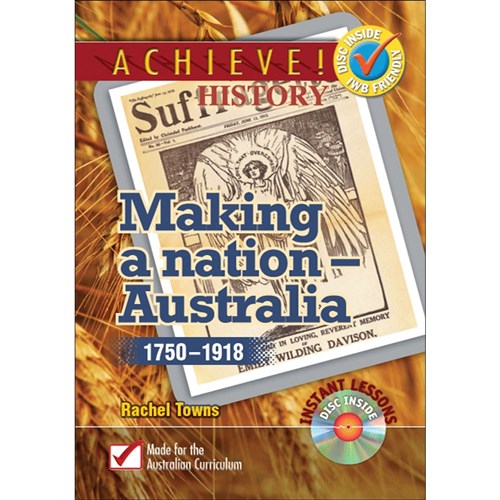 Making a nation : Australia, 1750-1918
by
Making a nation : Australia, 1750-1918
by
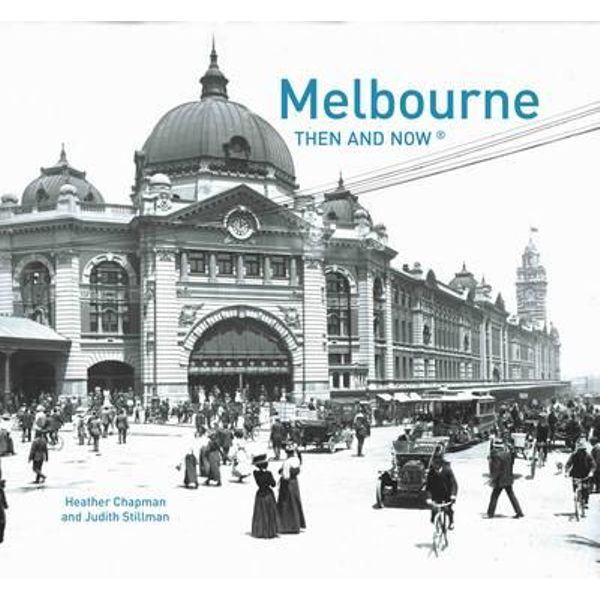 Melbourne then and now
by
Melbourne then and now
by
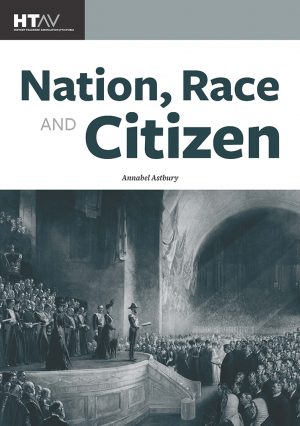 Nation, race and citizen 1888-1914
by
Nation, race and citizen 1888-1914
by
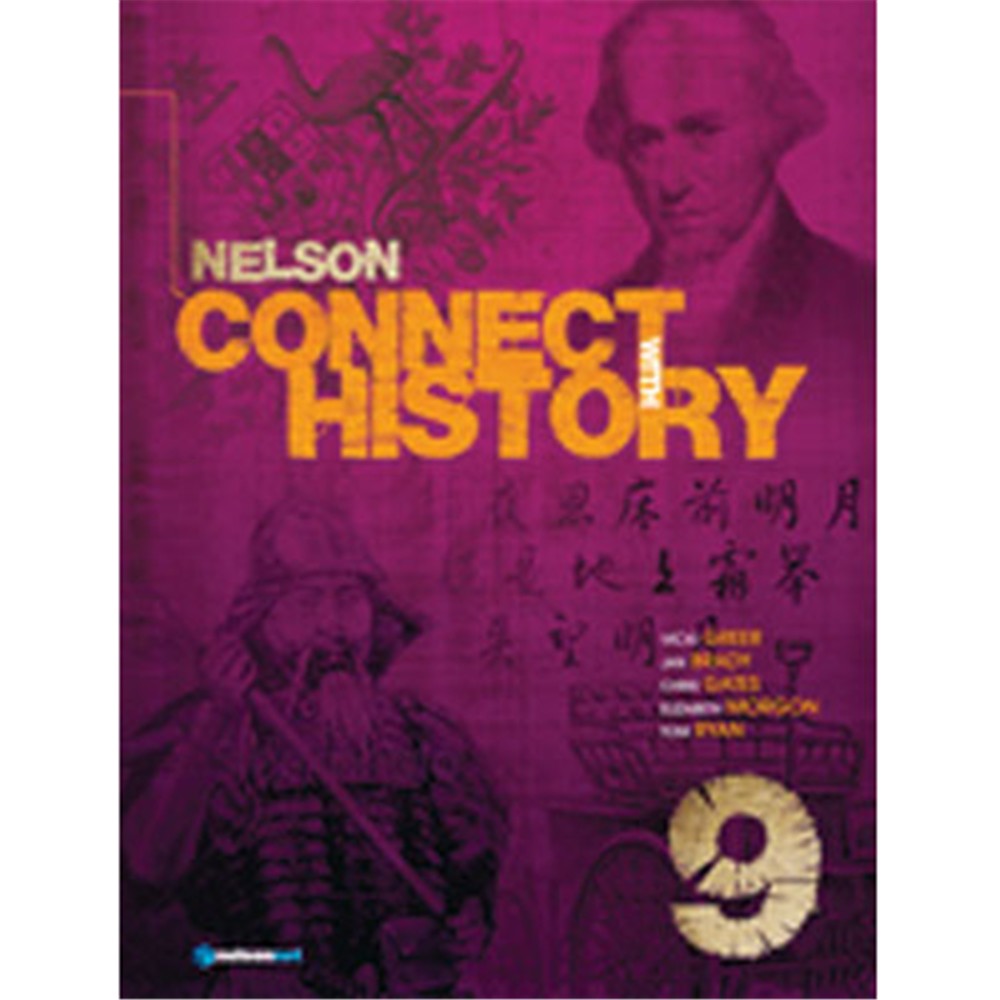 Nelson connect with history 9
by
Nelson connect with history 9
by
 Rotters and squatters 1820-1850
by
Rotters and squatters 1820-1850
by
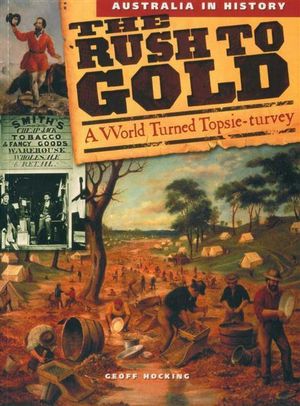 The rush to gold: a world turned topsie-turvey
by
The rush to gold: a world turned topsie-turvey
by
 Southern voices: Australian history to 1918
by
Southern voices: Australian history to 1918
by
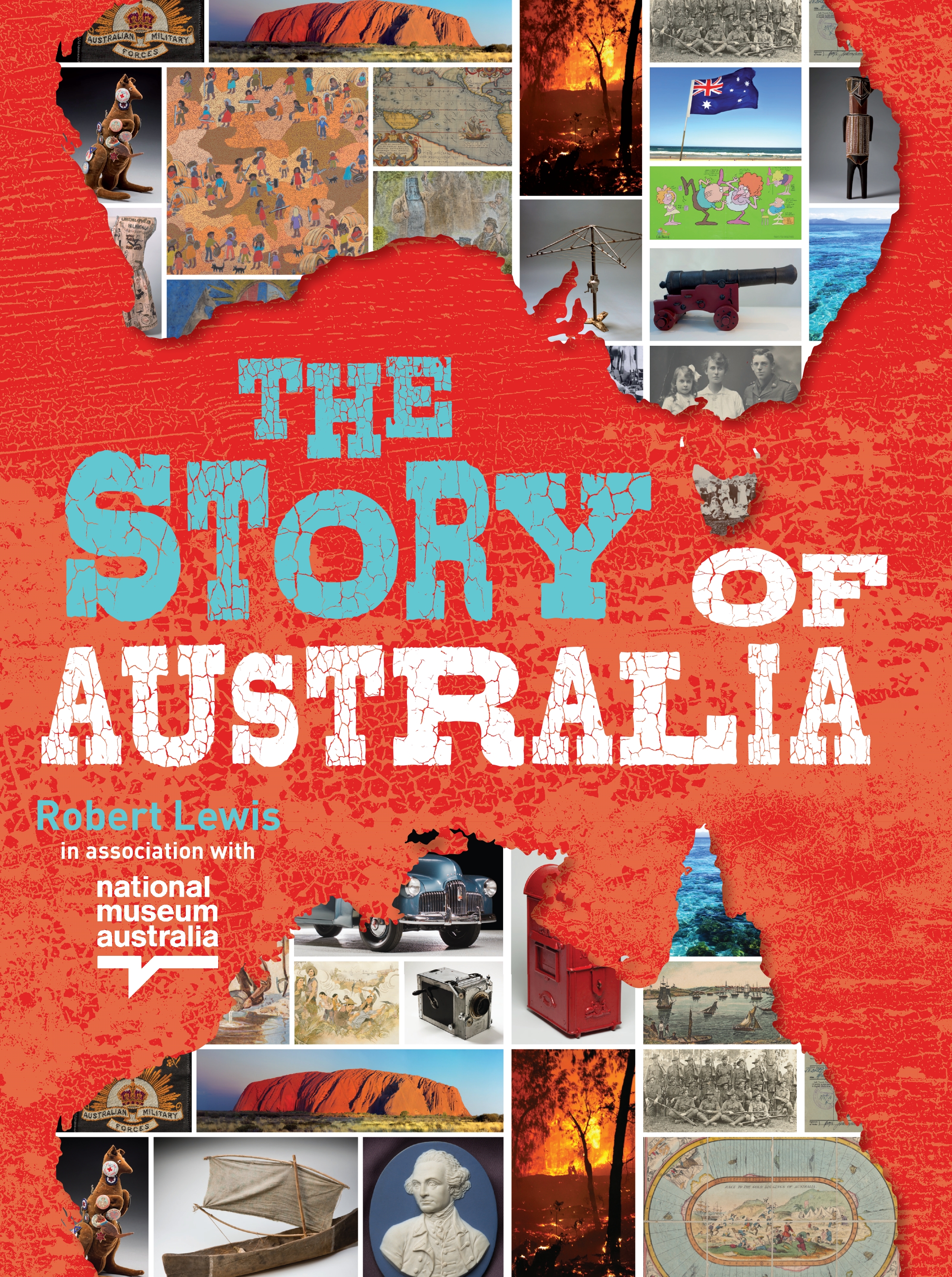 The story of Australia
by
The story of Australia
by
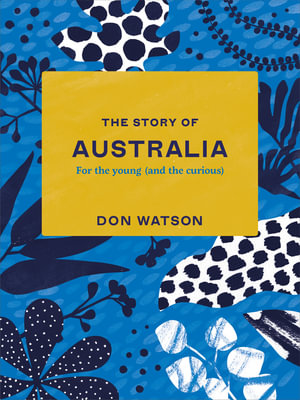 The story of Australia : for the young (and the curious)
by
The story of Australia : for the young (and the curious)
by
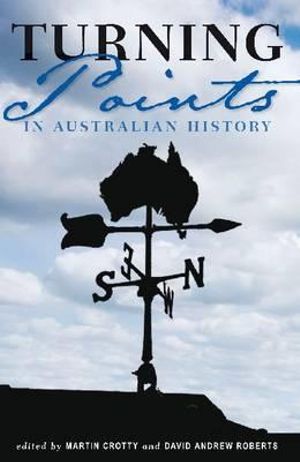 Turning points in Australian history
by
Turning points in Australian history
by
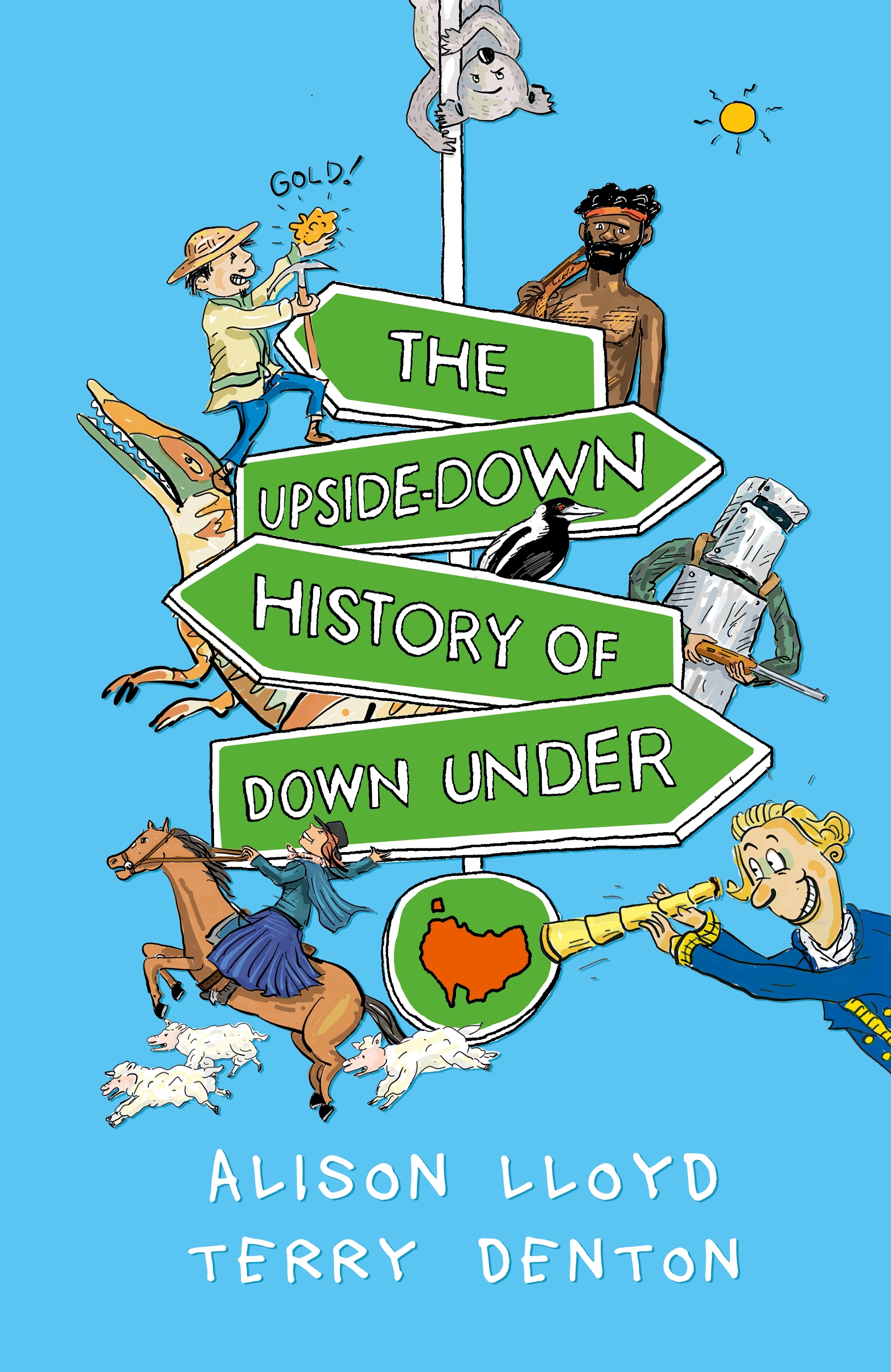 The upside-down history of down under
by
The upside-down history of down under
by
 Why we are Australian : 125 defining men, women and movements over three centuries
by
Why we are Australian : 125 defining men, women and movements over three centuries
by
 The wild colonial boys Australia's most notorious bushrangers
by
The wild colonial boys Australia's most notorious bushrangers
by